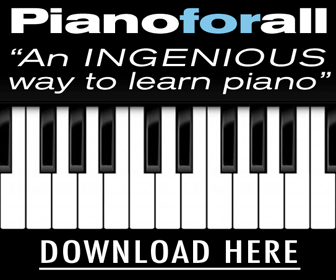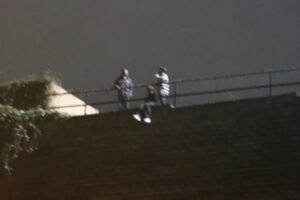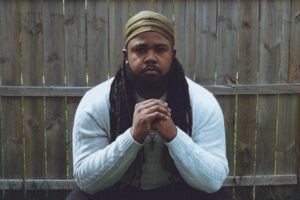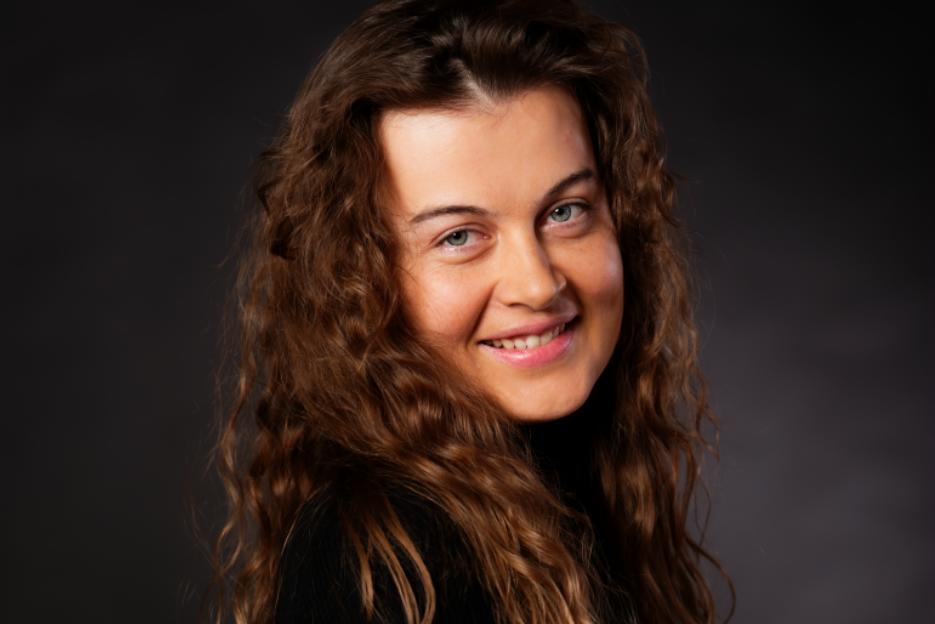
When it comes to infusing soul and emotion to a performance, artists like Margarita Pinkosz have the unique ability to transport the listeners far from the distractions of the modern world. Soulful and emotional, powerful and fierce, each piece finds the right colors through the artistic vision of this talented artist.
The vast harpsichord repertoire, from D’Anglebert to Froberger, from the most intimate and vibrant Scarlatti to the French Jacques Champion de Chambonnières, come to life, again and again, thanks to an acute and in-depth approach.
Today, at Planet Singer, we have the great pleasure of discovering more about this talented artist and her music, diving into her world with an exclusive interview!
Hi Margarita, thanks for being here with us today! Artists like you keep the flame of Classical music alive, especially for the new and future generations. But let’s start from the very beginning. When did you discover your passion for music?
Hello you guys! Thanks for having me here :). My passion for music started from my parents because they are both pianists/musicians. They met while studying at the university, sharing their passion for music. Even before I was born, my mom would “take me” to concerts, operas, music events, or perform by herself! I don’t even remember when I was without the piano, singing, or being around other musicians. My earliest memory is from about three years old when my grandparents found a pianist to play some classical repertoire for me regularly and slowly teach me something age-appropriate. But I was very young, so I only wanted to do fun activities and whenever there was a “serious” part of the lesson/performance, my always excuse was that I needed to use the restroom. This pianist was so patient with me… My mom also taught me singing while accompanying the piano. When I was 5 or 6, I passed the entrance exam to the Kiev National Music school, a so-called “10-year” school. I later left for my fatherland, Poland, and continued my musical education there. Very quickly, I became very serious about becoming a performing pianist.
With your unique approach and incredible interpretation skills, your playing is highly recognizable; This is a crucial factor for pianists and musicians in general. How important is it for you to make each performance resonate with your inner self while maintaining the original soul the composer gave to the piece?
Oh, that’s a great question! I think this is the question that I ALWAYS was asking myself. I have so many ideas in my head that I simply cannot just blindly follow the composer’s instructions; I always broke the so-called style rules and involved my own interpretation. Maybe that’s why you can love me or hate me ;). And that’s another reason why I started to play harpsichord a few years ago. There is so much freedom there! I love how the music is so much more ALIVE than in piano because you can compose on the given base. Each performance is unique, and my mind is challenged, which I love! Harpsichord playing reminds me so much of jazz! However, I only have a small experience in the art of the latter.
Polish music is notoriously one of the countries with the richest and longest history in music, enlightened by world-class outstanding composers and performers. How do you do your pics among this plethora of pieces?
I just dig for the rarest and least known pieces. I like to discover new things and give something unusual or unexpected to my audience! I also simply like music with folkloric elements, and soooo many Polish, Russian, Romanian, Tcheque etc., composers actually involved it in their compositions! I like how classical and elegant go together with simple and rustic!
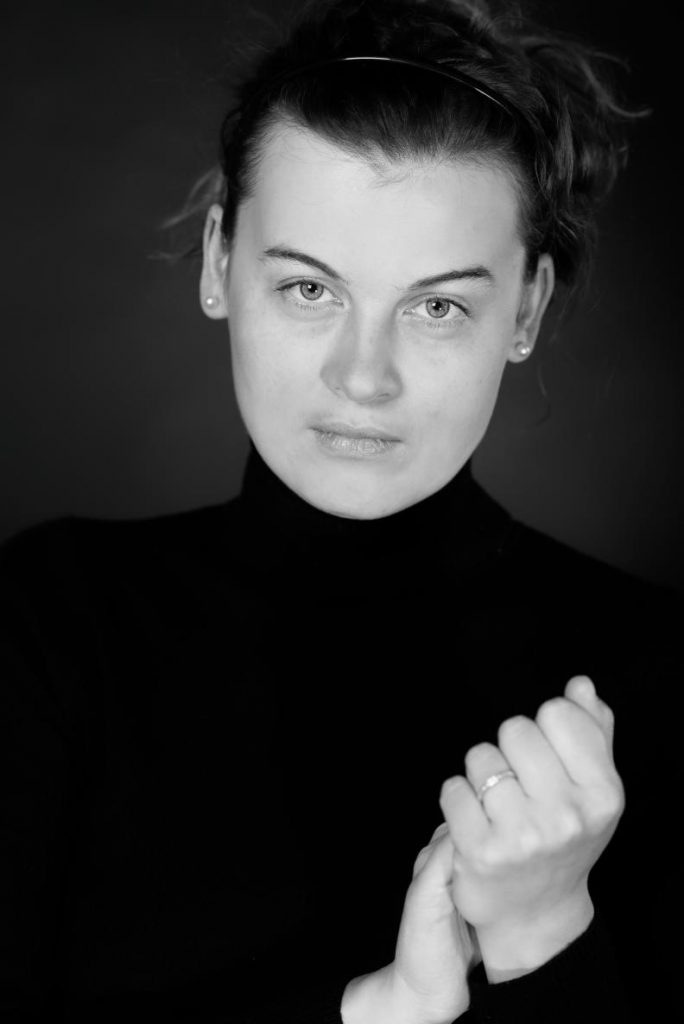
You won dozens of international competitions and performed in countless festivals; you recently graduated from your third Master’s degree and studied with legendary Grammy-nominated Corey Jamason. Your career is skyrocketing, and this is the result of hard work, passion, and talent. Is there any piece of advice you would give to those young students who are approaching classical music for the first time?
Oh, thank you! I really don’t think I am doing anything; I am working into actually being able to be more efficient. I always feel like I am too lazy. So I am actually inspired by my fellow classmates from the conservatory of San Francisco, hard-working people who study by day and work in the evenings. This was my path too! It was so difficult because education in the USA is the most expensive in the world. The level in the uni is very high, and everyone is squeezing you like a lemon… It was all a great experience and life lessons I will never forget!! I have learnt so much not only about the new skills but also about myself. I think I had a huge burnout by the end of my degree, and I literally stopped creating for a year after that! I think being a musician is so hard these days; it’s only for the tough ones. So I am still looking for a magic potion on how to work and live and not just exhaust myself and not have any memories by the time I am 70 or 80. I am not sure if I answered your question the way you expected… sorry :).
If you could choose one piece that resonates with you most of the others, which one would it be?
I am always fond of Polish and Russian music, and for years I love Porkofiew’s Sonate nr 2 or all the 15 string quartets of Dmitriy Shostakovitch. From Polish music anything from Karol Szymanowski, Witold Lutoslawski, Alexander Tansman, and also just the new polish compositions of the young composers: Hanna Kulenty “VAN,” Agata Zubel “Chamber Piano Concerto.”
pianist harpsichordist Margarita Pinkosz
Margarita Pinkosz’s rendition of Piano pieces like Chopin’s Scherzo n 2 in b minor Op 31 will leave you in awe.
Polish music is one of your main focus interests, especially the repertoire from the 21st century. How would you describe musically, sentimentally, and artistically such creative, turbulent yet passionate times and how they reflect in the music of those composers?
What a great question! Since the 21st century is finally the era of women, I think we slowly see it in music and other forms of art, too! I loved that Olga Tokarczuk got a Nobel Prize. I am so proud of Agata Zubel, Klaudia Pasternak, Jagoda Szmytka, Hanna Kulenty… I think all the art styles are important and interesting. That is true; Polish music is my main area of interest. It’s little known, and I think my passion can make it circle around a bit more! 21st-century music is intense, very intense, and it took me some time to understand it well, to interpret it correctly. When I told myself that it was just about current historical events, it became very natural to me. I think I can understand the weirdest and most dissonant sounding music and show some beauty in it. A contemporary piece that is making me most anxious and extremely uncomfortable is Krzysztof Penderecki’s “Threnody for the Victims of Hiroshima.” That’s how history/our times reflect in the music of the current composers.
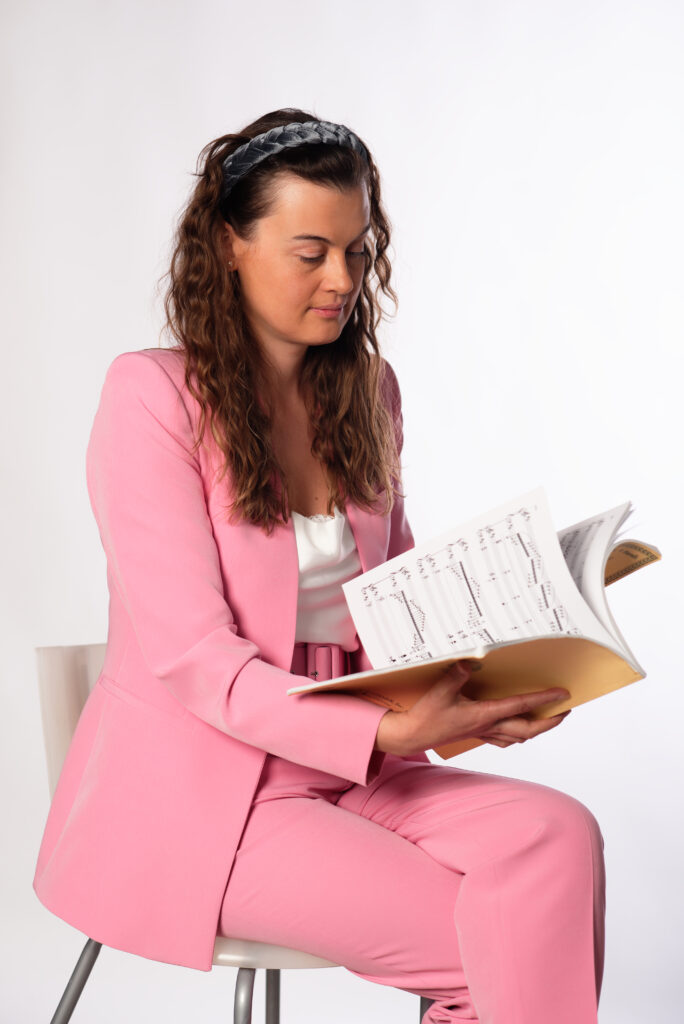
Music is an ethereal form of art but is not exempt from having a substantial impact on the environment. The music manufacturing and the touring industry both impact the world massively. We know this is a subject you particularly care about. What is your vision for a future where music’s impact on the environment is more sustainable?
I think it’s better and better, right now because of covid thousands of concerts have become online so not so much touring anymore, it’s sad because nothing can replace a live concert, however, definitely, it’s a smaller footprint when we perform online. Hopefully, the manufacturing of musical instruments and scores is not too disturbing; some instruments can be used for years, some even for centuries! And with the digital scores, it’s easier on the paper.
If you could travel back in time, is there a specific composer you would like to collaborate with? What about contemporary ones?
I would go for Mozart; I would have so many questions for him! From the contemporary ones, there are enough alive ones that I still can meet, so I will focus on that :).
Piano and Harpsichord are two instruments that, although related, require a completely different approach. If you could choose a piece that you love playing for each one of these two instruments, which one would they be?
So for piano, I would totally choose Kulenty’s “VAN”, Prokofiew’s sonata nr 2, and for harpsichord, I would challenge myself with Katarzyna Arnhold’s “Complaint of the black rose”. As you see, these are my current obsessions.
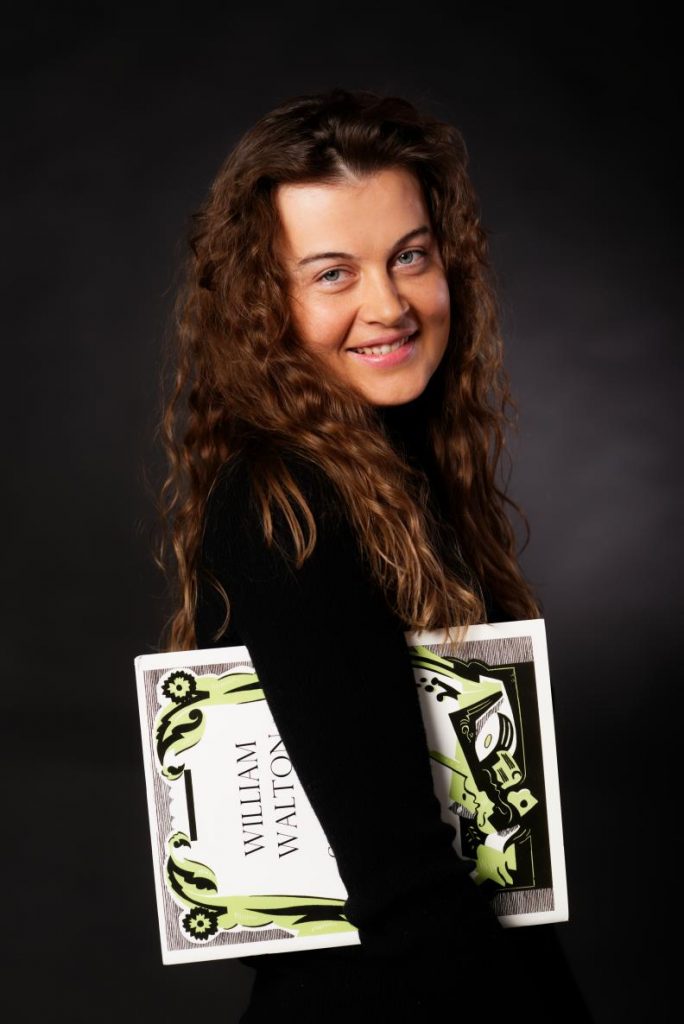
pianist harpsichordist Margarita Pinkosz
Performers like you are on the first line with an arduous task: bringing classical music not only to the lovers of the genres but also to the current and new generations, that most of the time follow the trends of mainstream music missing on the infinite variety of genres out there. How would you make them discover masterpieces like Chopin’s Ballades, preludes, and concertos?
It’s true that classical music survives mostly in the wealthier part of society. Music and art education can be costly, so not everybody can afford it. I can see that in the Bay Area- classical music is highly respected, and families really want their offspring to learn about it play one or more instruments… I am also aware of the music programs sponsored by the city that invite musicians to the schools and enable learning music culture for free for their students. And also, there are always people who are born with the urge to learn/do music and arts… I think classical music is the foundation of the more popular, mainstream music, so we won’t easily forget that.
What are your plans for the future?
I am planning to perform more Polish music, especially the one composed by women. I think there is this gap that needs to be filled. I am working with multiple artists at the same time; actors, composers, poetesses… I like to mix various arts techniques!
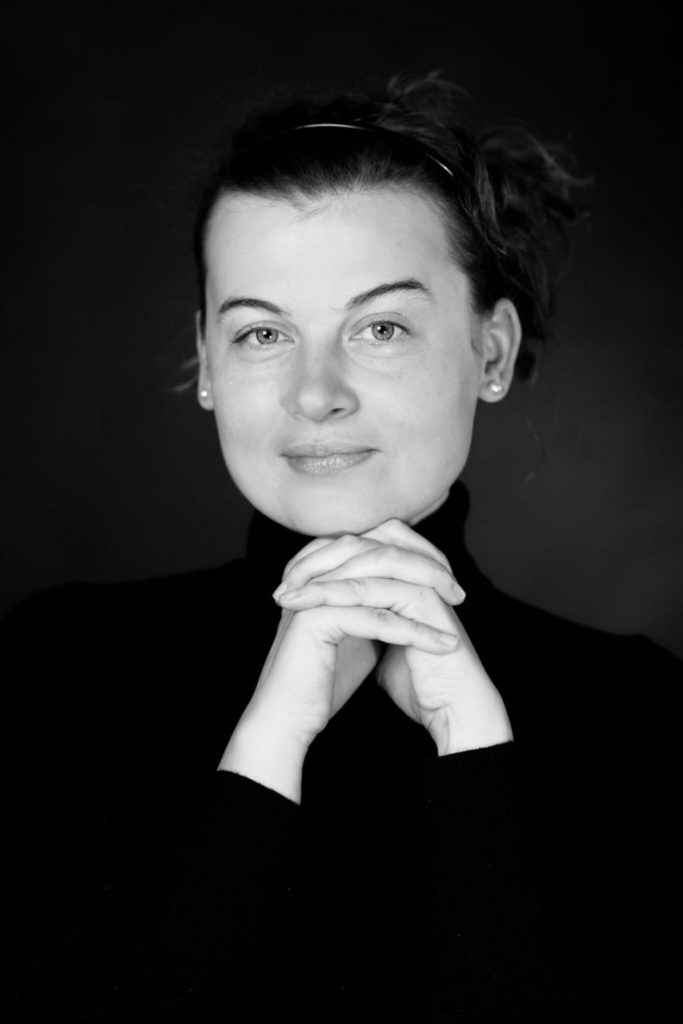
Margarita, it was such a pleasure having you with us today. Your music and your word will impact many young artists for sure. Is there anything you would like to say to our readers?
I am grateful to be here and be able to let my readers get to know me better :). Thank you all :). Please contact me on my website: margaritapinkosz.com if you want to do a project together!
Check the links below, discover more about Margarita Pinkosz and her music, and don’t forget to follow her on her social pages to stay up to date with her projects!
Official Website: www.margaritapinkosz.com
YouTube: Margarita Pinkosz
Bio:
Margarita Pinkosz is an established classical pianist, harpsichordist and a promoter of Polish music. Top prize winner of dozen international competitions and performer of countless festivals. Currently based in San Francisco, California, she recently graduated from her third Masters degree while studying with Grammy nominated Corey Jamason. With a keen interest in Polish music, especially from the 21st century, Pinkosz seeks to become a composer for youth, performer and educator of the next generation of musicians. Passionate about the environment, she is looking to connect with like-minded artists who want to combine music performance with sustainability.
Learn Singing, Piano and learn how to MAKE MONEY with your Music! Check these out!
Ad
Our latest articles!



